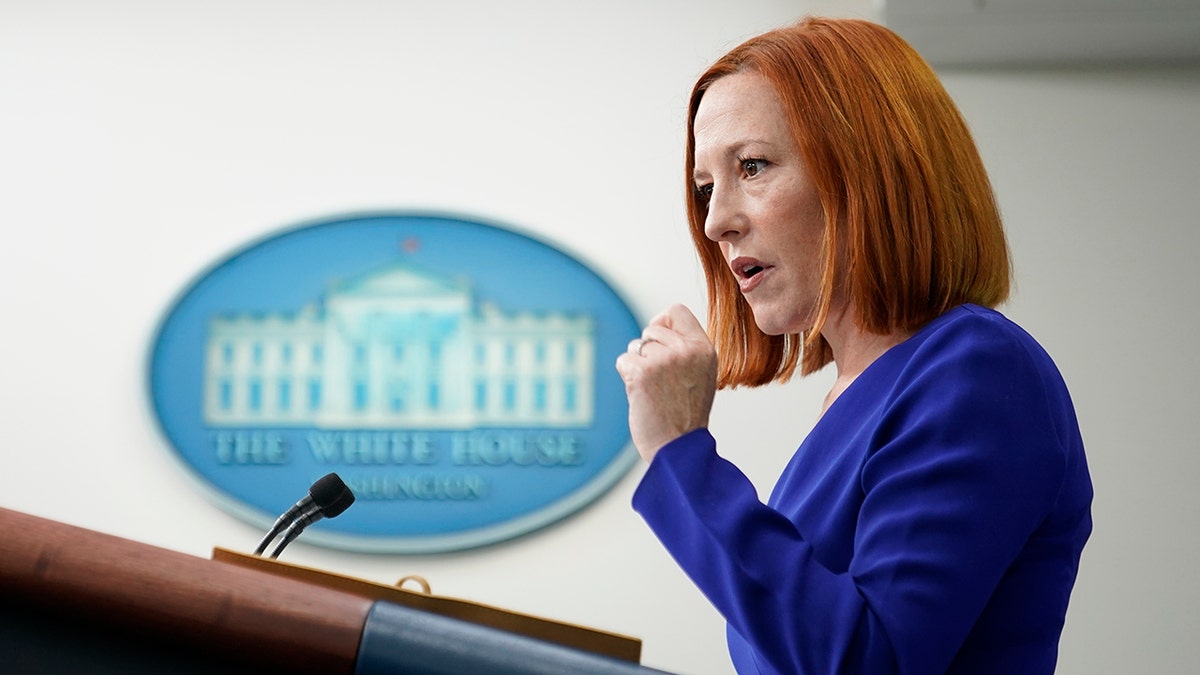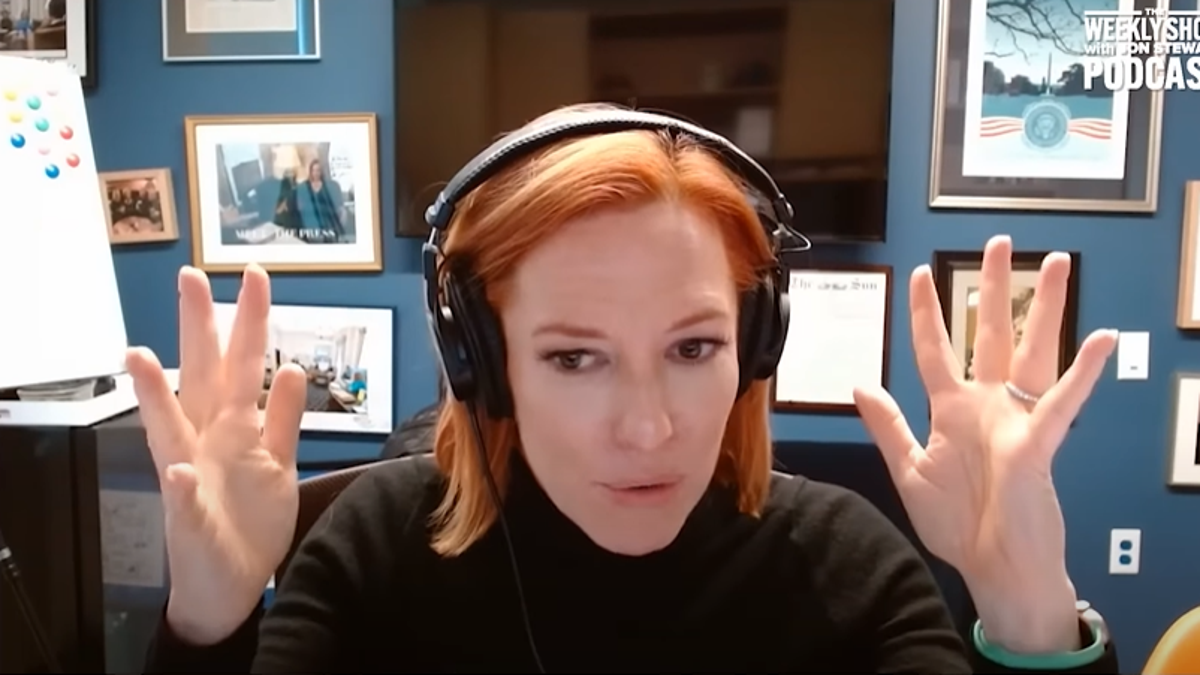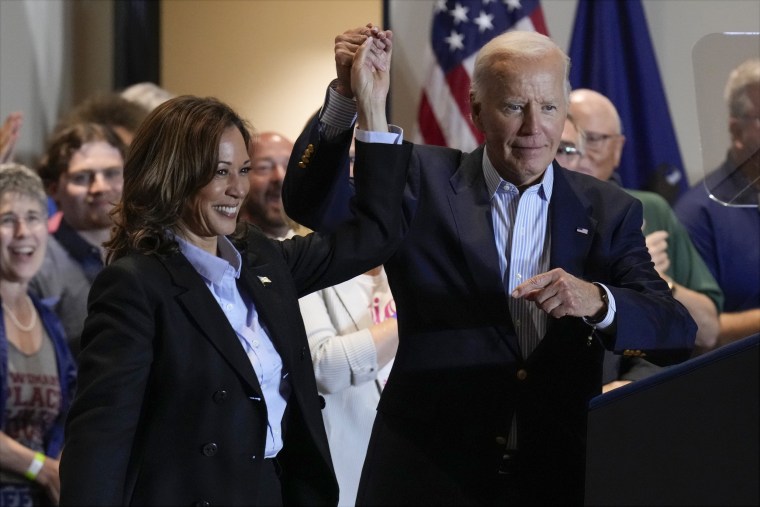The Democratic Disconnect: Jen Psaki’s Brutal Reckoning and the Party’s Path to Redemption

In a rare and candid moment of self-reflection, MSNBC host and former Biden press secretary Jen Psaki has openly criticized the Democratic Party’s failures in the 2024 election, offering a stark post-mortem on their messaging, strategy, and inability to connect with voters. In a revealing conversation on Jon Stewart’s “The Weekly Show” podcast, Psaki did not mince words about the party’s missteps, exposing a critical divide between Democratic rhetoric and voter priorities.

A Party Trapped in Its Own Ivory Tower
Psaki’s primary criticism centered on how Democrats framed the 2024 election, particularly their repeated warnings about authoritarianism and threats to democracy. She argued that these themes, while significant, were presented in a way that felt academic and detached from the real concerns of everyday Americans.
“I feel like when Democrats, and including people who are on television in a variety of ways, were saying things like, ‘Authoritarianism is under threat and democracy is on the ballot,’ I think we were speaking in a manner that was so academic and Ivory Tower, it wasn’t talking about a lot of the things people actually care about,” Psaki said.
Her blunt assessment highlights a fundamental flaw in Democratic messaging: an over-reliance on ideological narratives that resonate within elite circles but fail to strike a chord with middle-class and working-class voters. Instead of addressing kitchen-table issues like inflation, healthcare, and economic stability, the party’s leadership appeared preoccupied with grand philosophical battles that, while real, did not translate into votes.

A Voter Revolt Against the Status Quo
Psaki’s remarks suggest that the 2024 election loss was not necessarily a rejection of democracy but rather a repudiation of the Democratic Party’s inability to engage voters in meaningful ways. She acknowledged that many voters saw the party’s rhetoric as out of touch and overly intellectualized.
“So, I don’t know that people voted against democracy,” she admitted. “I think they voted in some ways against protection of the status quo and kind of the disconnected academic Ivory Tower elite language that is too often used by Democrats, sometimes on cable television.”
This revelation is damning for a party that has long branded itself as the champion of the middle and working class. The suggestion that Democrats have become an insular entity—speaking in terms that alienate rather than inspire—echoes concerns that have been raised by both progressives and moderates within the party for years.
The Need for a Messaging Overhaul
One of Psaki’s key takeaways from the election loss is the urgent need to overhaul Democratic messaging. She even recommended a fundamental shift in language:
“Cross ‘authoritarianism’ and ‘oligarchy’ out of every script. Nobody talks this way.”
This simple yet profound statement underscores a growing realization that Democratic politicians need to speak in ways that resonate with everyday Americans. Political science jargon and existential warnings may stir debate in think tanks and newsrooms, but they do little to persuade a worker worried about gas prices or job security.

The Party’s Inability to Push Back Against Policy Cuts
Psaki also expressed frustration that Democrats have failed to effectively counter the Trump administration’s policy cuts and explain their tangible consequences to voters.
“But that seems obvious, Jen! So why are they not doing it?” Stewart pressed.
With an exasperated sigh, Psaki responded, “I wish I knew the answer to that question.”
The exchange highlighted a broader issue within the party: the failure to effectively communicate policy impacts. While Republicans have long mastered the art of concise, emotionally charged messaging, Democrats have struggled to distill complex policy debates into clear, voter-friendly narratives.
A Moment of Reckoning: Where Do Democrats Go From Here?
Stewart’s pointed observation that Democrats still lack an understanding of why they lost resonated with Psaki, who admitted, “I don’t see that yet, either.”
With the party now out of power, Psaki suggested that Democrats should adopt a more aggressive, disruptive approach:
“Lost everything, out of power, in control of nothing? Time to break some s—.”
Her call to action hints at the need for a dramatic strategy shift, one that prioritizes bold, tangible solutions over abstract ideological battles.
The Crossroads Ahead: Will Democrats Listen?
The 2024 election was a wake-up call for Democrats, but whether they heed Psaki’s warnings remains to be seen. If the party hopes to rebuild and regain voter trust, it must shed its perceived elitism, refine its messaging, and reconnect with the real concerns of American families. The alternative? Continued electoral defeats and a growing sense of irrelevance in a political landscape that increasingly demands authenticity over abstraction.




